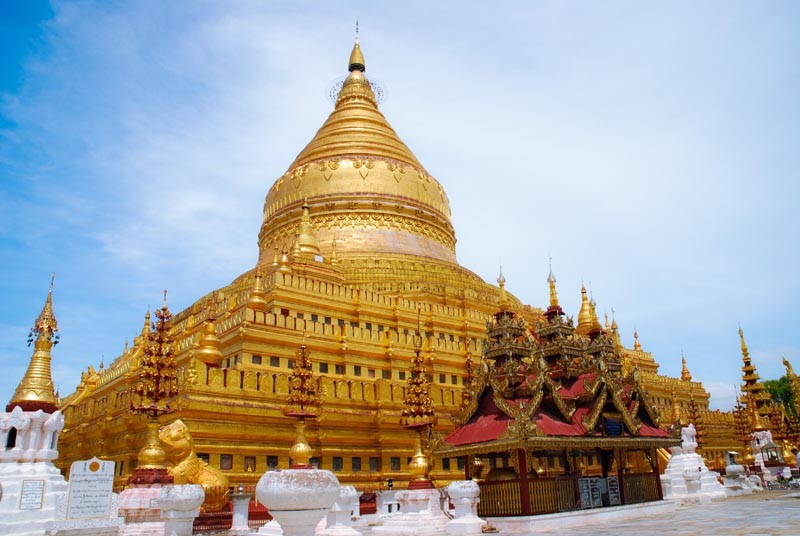U.N. General Assembly Begins 80th Session, Plans to Discuss Persecution in Myanmar

United States (International Christian Concern) — Representatives from the United Nations’ 193 member states will gather on Tuesday to open the global body’s 80th regular session. High-Level Week, during which heads of state will deliver highly anticipated policy speeches, is scheduled for late September.
Importantly, a special high-level plenary meeting on the crisis facing ethnic and religious minorities in Myanmar is scheduled for Sept. 30. This meeting, according to an agenda published by the U.N., “aims to sustain international attention, review the situation on the ground, and propose a concrete, time-bound plan for a sustainable resolution.”
Crisis in Myanmar
Myanmar is currently ruled by a Buddhist nationalist junta, which, in 2016, launched a brutal military campaign against the country’s Rohingya Muslim minority community in Rakhine state. The U.N. and human rights groups have documented these atrocities as crimes against humanity and possible genocide, with survivors still facing displacement and statelessness.
Tens of thousands of Rohingya have been killed and more than a million displaced, many as refugees to neighboring countries like Bangladesh. Since taking over the government in 2021, the junta has continued to support or allow violent attacks against the Rohingya, including by Arakanese militants.
In many regions of the country, the identities of religious and ethnic minority identities overlap. In addition to its attacks on the Rohingya in Rakhine state, the junta has continued to wage an all-out war against various minority communities throughout the country, including against groups such as the Karen and Chin with longstanding Christian roots.
In a March resolution, the 79th General Assembly expressed its deep concern over the “sharp rise in serious human rights violations and abuses” in 2025 and urged the international community to support efforts to bolster civil society, democracy, and human rights in Myanmar.
In March, the U.S. Commission on International Religious Freedom (USCIRF) issued a report condemning the junta’s systematic persecution of religious minorities and calling on the global community to increase pressure on the regime.
“The country has seen the displacement of over 3.5 million people in recent years,” the report noted, “including more than 90,000 in Christian-majority Chin State, 237,200 in Kachin State, and one million Muslim-majority Rohingya refugees.”
Global Crisis of Persecution
Around the world, religious freedom crises continue to demand urgent attention at the United Nations, where states are pressed to uphold the commitments enshrined in the Universal Declaration of Human Rights.
In China, officials have resisted international scrutiny over concentration camps for Uyghurs, forced organ harvesting from Falun Gong, and continued crackdowns on leaders of the house church movement.
In Nigeria and the broader Sahel region, extremist violence and the rise of Islamist terrorism have drawn repeated debate within U.N. bodies. Groups like Boko Haram and ISIS-West Africa have carried out mass killings, abductions, and the destruction of houses of worship, creating one of the world’s most acute displacement crises.
In the Democratic Republic of the Congo, U.N. Peacekeeping’s MONUSCO mission faces immense challenges as the Islamic State-affiliated Allied Democratic Forces continue brutal attacks on Christian communities.
In the Middle East, the theocratic Islamist regime in Iran continues its systematic persecution of religious minorities, including the country’s rapidly growing population of converts to Christianity. There, leaving Islam is an offense punishable by death, and any participation in the house church movement is considered a national security threat.
The government in Tükiye, also known as Turkey, is using increased government control to fuel centuries-old ideas of pan-Turkic nationalist superiority over the region’s many ethnic and religious minorities. Christian missionaries are routinely expelled from the country, ancient Christian heritage sites have been turned into mosques, and Türkiye has played a key role in the subjugation of Armenia — the first Christian country in the world — to the pan-Turkic ambitions of neighboring Azerbaijan.
Violent religious nationalism in places like Pakistan and India continue to threaten fragile Christian communities, which are often seen as threats to national unity and accordingly receive little protection or support in the face of growing violence and discrimination.
In Latin America, concerns are rising over the use of state power to pressure and intimidate religious leaders who speak out against corruption or authoritarianism. In countries like Nicaragua, the U.N. has documented systematic crackdowns on the Catholic Church, including the expulsion and imprisonment of clergy critical of government abuses.
Challenges to the U.N. Response
U.N. Peacekeeping, the body responsible for the U.N.’s peacekeeping missions around the world, currently operates in eleven theaters, from Haiti to the DRC to northern India. About half of its operations are in Africa, the new epicenter of Islamist terrorism and a growing hotbed of religiously motivated violence against Christians.
Despite the increased security challenges, the U.N. peacekeeping budget faced a $2.7 billion shortfall as of May 2025. As the U.N.’s peacekeeping presence is forced to shrink in some areas due to these budgetary shortfalls, these drawdowns risk placing vulnerable persecuted communities at increased risk.
In complex conflicts, the role of religious extremism in fueling violence and the potential for religious understanding to fuel peace is often ignored. For the U.N.’s peacebuilding agenda to succeed, safeguarding freedom of belief must be recognized not as a side issue, but as a cornerstone of global security.
From extremist groups in Africa and the Middle East to state-driven repression in Asia, faith identities often intersect with political and ethnic divides, making religious freedom central to lasting solutions. Ignoring these roots risks perpetuating cycles of persecution and radicalization, while engaging them offers hope for reconciliation and resilience.
To read more news stories, visit the ICC Newsroom. For interviews, please email [email protected]. To support ICC’s work around the world, please give to our Where Most Needed Fund.
